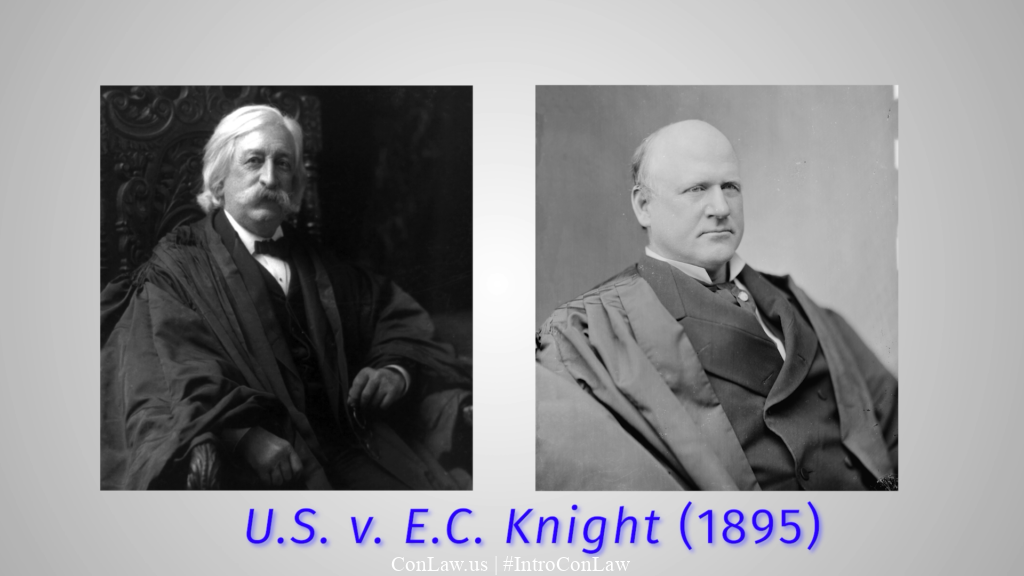
United States v. E.C. Knight Company Overview
October 24, 1894 - January 21, 1895
Philadelphia, PA
Boston, MA, United States
Agreement reached
Introduction
Background and causes of United States v. E.C. Knight Company
The events of United States v. E.C. Knight Company
The events of United States v. E.C. Knight Company unfolded through a series of legal actions that culminated in a major Supreme Court decision in 1895.
Initial transactions and consolidation
By early 1892, the American Sugar Refining Company had gained control over nearly all sugar refineries in the United States—except for four major refineries based in Philadelphia and the Revere refinery in Boston. These remaining refineries, which accounted for about 33 percent of sugar refining production, operated independently and competed actively among themselves and with American Sugar. In March 1892, American Sugar negotiated and completed contracts to purchase the stock of these Philadelphia refineries, including the E.C. Knight Company, paying for them largely through transfers of its own stock. This transaction effectively placed the Philadelphia refineries under American Sugar's domination, allowing it to control the vast majority of sugar refining in the country.
Government lawsuit filed
The United States government responded by filing a lawsuit against the E.C. Knight Company and others in the federal district court, alleging that the combination violated the newly enacted Sherman Antitrust Act of 1890. The government argued that by acquiring the Philadelphia refineries, American Sugar had created a monopoly that restrained interstate commerce in sugar. The case focused on whether the refining business, once integrated under American Sugar, fell under federal regulatory authority.
Legal arguments and court proceedings
During the legal proceedings, the government maintained that the stock purchases were part of a deliberate scheme to monopolize sugar refining and manipulate prices, effectively restricting trade between states and with foreign nations. The defendants, including the E.C. Knight Company, contended that manufacturing—the refining of sugar—was a local business and not commerce subject to federal regulation. They argued the Sherman Act did not apply to such manufacturing activities, even if a monopoly resulted.
Supreme Court decision
After going through lower courts, the case reached the U.S. Supreme Court, which heard arguments in late 1894. On January 21, 1895, the Court delivered its decision. In an 8-to-1 ruling, the Court sided with the E.C. Knight Company and its affiliates, holding that sugar refining was a manufacturing process confined within a single state. Thus, it was not interstate commerce and could not be regulated by Congress under the Commerce Clause. The decision significantly limited the Sherman Act’s power over industrial monopolies by distinguishing manufacturing from commerce.
The case's progression from stock acquisitions to Supreme Court adjudication defined the legal boundaries of federal antitrust enforcement at that time, focusing strictly on whether the manufacturing consolidation fell within congressional jurisdiction.